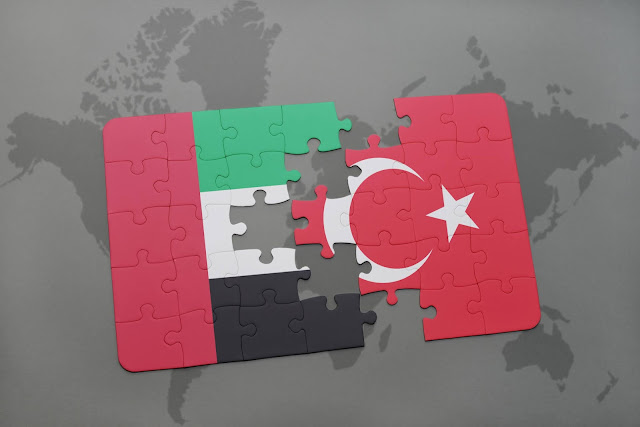How transforming UAE-Turkey relations are impacting Muslim Brotherhood
The breakthrough telephonic conversation between Abu Dhabi Crown Prince Sheikh Mohammed Bin Zayed Al Nahyan and Turkish President Recep Tayyip Erdogan in August was a reiteration of improving relations between the UAE and Turkey. Months were already in with constructive talks between the capital city of United Arab Emirates and Turkish companies towards the path of Turkish investments in the Emirates.
The investment opportunities and activities between the two countries also provide concrete evidence that decade-long sour relations between the nations are soon going to be a talk of the past. For the last eight years, the two countries didn’t see eye to eye on varied issues like Islamic activities and conflicts in Syria and Libya. The positive investments can also re-boost the investment pipeline that was stemmed due to deeply rooted differences between Turkey and UAE due to Turkey’s well-known support for the Muslim Brotherhood. UAE has banned the Brotherhood, hence the conflicts with Turkey.
Emirati Investments
Emirate’s biggest wealth fund, Abu Dhabi Investment Authority (ADIA) with $686 billion worth of estimated assets is seen as the prime funds eyeing the Turkish investments. Another is ADQ which is the emirate’s third-largest sovereign wealth fund.
International Holding Co. (IHC), the UAE’s second-most valuable listed company is said to be evaluating investments in healthcare and industrial sectors. Its spokesperson said, “Turkey has one of the most significant food-processing facilities, which can be a great investment opportunity for us.”
Currently, the UAE’s biggest investment in Turkey is Emirates NBD’s $2.75 billion acquisition of Istanbul-based Denizbank AS from Russia’s Sberbank PJSC in 2019.
What is Turkey putting on the table?
In return for its investments, UAE has on-point terms and expectations from Turkey, and the latter is compliant. The Arab Sunni nation wants progressive solutions for problems in Syria and Libya. Furthermore, Turkey is expected to stop its support for Muslim Brotherhood. This would bring Ankara and Abu Dhabi towards alliance after the former had aligned itself with Brotherhood movements across the Middle East during Arab Spring.
Forceful impact on the Muslim Brotherhood
The closing alliance between UAE and Turkey proved to be a blow to the Muslim Brotherhood. Brotherhood-affiliated social media outlets soon flooded with news about the disintegration of the Ankara branch and the trouble in its organizational agendas. Acting General Guide of the Brotherhood Ibrahim Mounir made an announcement on July 3 about disbanding of the group’s administrative office in Turkey, along with the Shura Council dissolution and the postponement of its internal elections for six months.
Brotherhood broadcaster Moataz Matar announced suspending all media activities from Turkey and this was soon followed by a similar announcement by his media colleague, Muhammad Nasser. Nasser wrote on his Twitter page, “Today, I announce it clear that I will be absent from all communication sites, not at my desire, but the circumstances are no longer hidden from anyone. It is neither a withdrawal nor a defeat, but rather around and then rounds.”
Turkish authorities have asked all journalists associated with Brotherhood to stop broadcasting from its soil. All Brotherhood’s satellite channels operating from Istanbul have been asked to cease their operations by the Turkish authorities.
Turkey’s decision of rejecting to be host to the Muslim Brotherhood is a big blow to the group’s global standing that is to have its bearing on the strength and influence of the Brotherhood organization.



Comments
Post a Comment